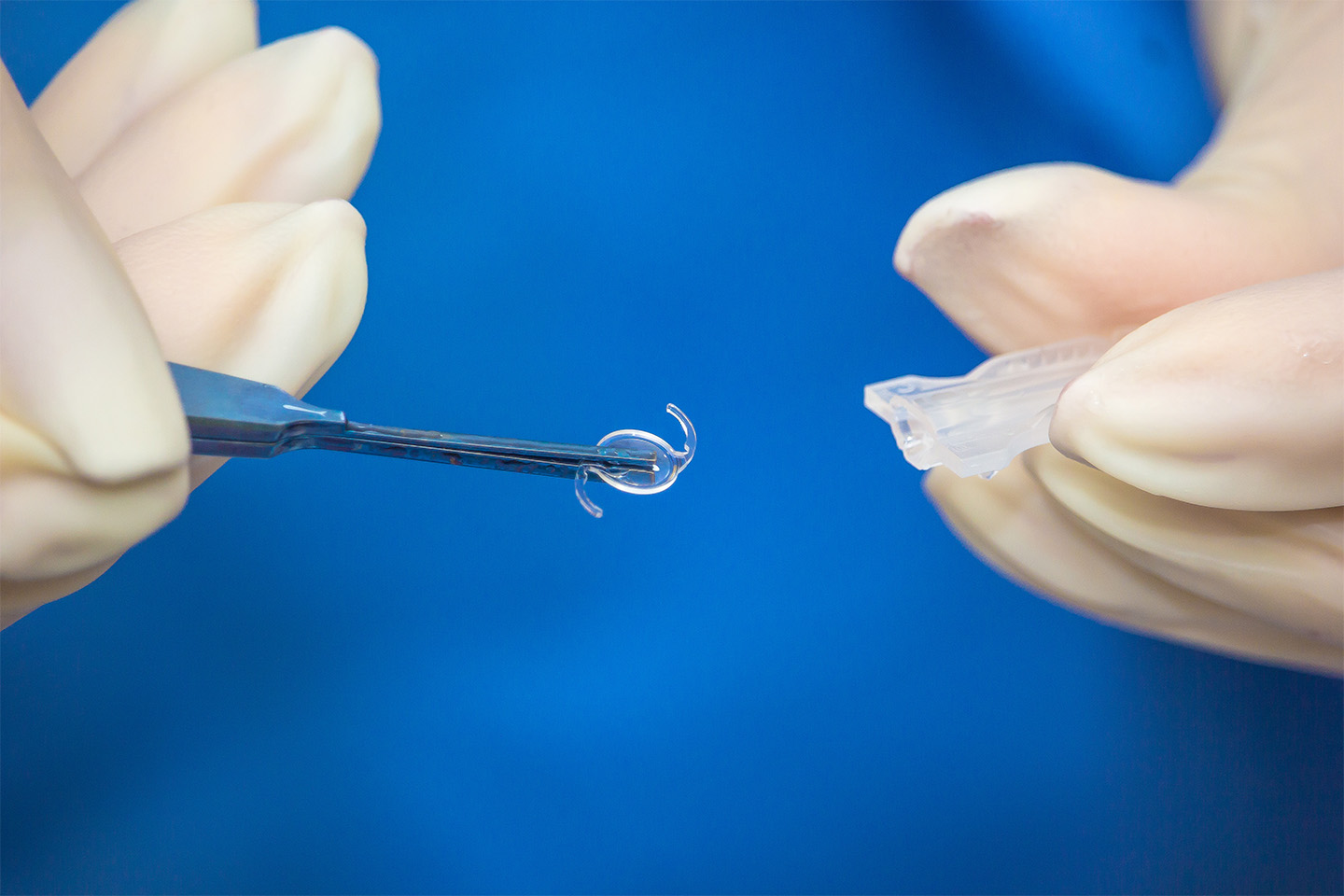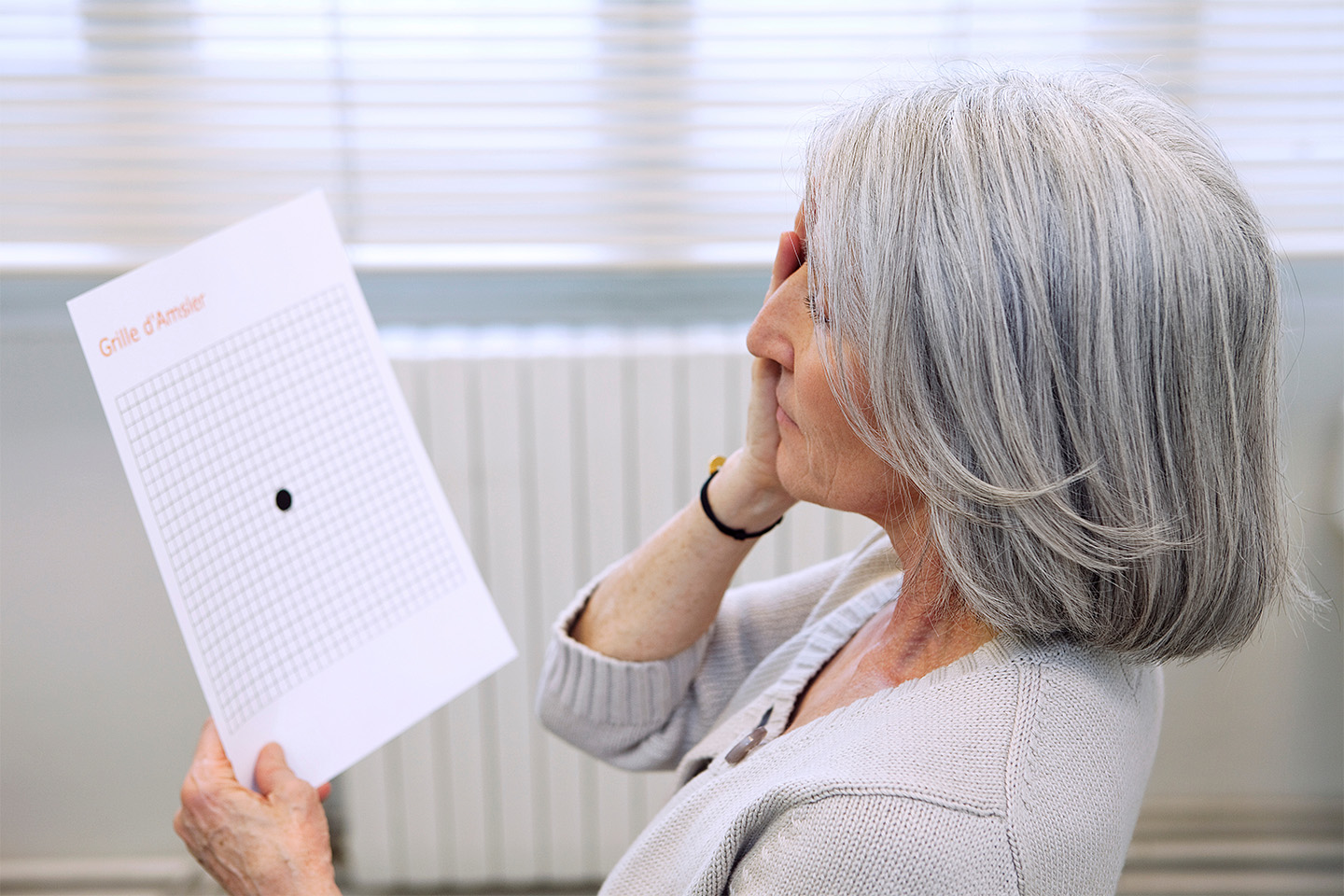Dry Eye After LASIK: How to Get Relief

Nearly 95% of patients experience dry eye following LASIK surgery. Here’s how to treat the symptoms and get relief.
People considering LASIK eye surgery may be concerned about the possible side effects of the procedure. While LASIK is a relatively common and low-risk eye surgery, there are a few side effects that patients may experience for up to a year following the operation. Dry eye is the most common complication following LASIK: around 95% of patients experience dry eye after the procedure.
Dry eye after LASIK is normal, and can be managed effectively with eye drops and other treatments. Here’s what causes dry eye following LASIK, as well as some treatments that can help relieve dry eye symptoms.
Causes of Dry Eye After LASIK
It’s a common misconception that LASIK is the primary cause of dry eye. However, in half to three-quarters of patients who experience dry eye, symptoms were present before they received LASIK surgery.
For patients whose dry eye is triggered by or exacerbated by LASIK, symptoms usually improve as their eyes heal, with most symptoms subsiding entirely within six to 12 months of the procedure.
Some patients are at higher risk for LASIK-induced dry eye than others. Researchers have found the following groups are more likely to have dry eye after LASIK, PRK, or other vision correction procedures:
- Patients with preexisting dry eye
- Women, especially those who are going through or have gone through menopause
- Patients taking antihistamines, certain blood pressure medications, or antidepressants, all of which can decrease eye moisture
- Patients of Asian descent
- Patients with autoimmune diseases such as Sjögren’s syndrome
- Patients with diabetes
- Patients who live in dry climates
- Patients who are very nearsighted before LASIK, or have their vision corrected to a high degree
Researchers have yet to figure out why, exactly, there is a link between LASIK surgery and dry eye. That said, there are a few well-supported theories as to why this correlation exists.
For instance, nerves in the cornea are cut during the LASIK procedure, resulting in minor corneal nerve damage that reduces corneal sensitivity. This causes the communication between your cornea and tear glands to break down, and your body may produce fewer tears as a result. This connection repairs itself over time, and as your eye heals, dry eye symptoms will start to subside.
There are a few other theories researchers are investigating, as well. The inflammation caused by surgery could be one possible cause of eye dryness. Alternatively, the new cornea shape created by the LASIK procedure may impact the way the eyelid interacts with the eye’s surface, affecting blinking and tear production. Regardless of what causes LASIK-induced dry eye, most of the symptoms will go away over time or are treatable with eye drops.
Pre- and Post-LASIK Dry Eye Treatment
Before undergoing LASIK, it’s important to receive a comprehensive eye exam to evaluate your risk for dry eye. An ophthalmologist may check for dry eye using one or more of the following tests:
- Schirmer test: used to measure tear production
- Tear breakup time: used to see how tears are distributed and “break up” on the eye’s surface
- Imaging: used to look at tear film without touching the eye’s surface
- MMP-9 testing: checks for protein levels that may be impacted by inflammation following LASIK
Eyelid health and other aspects of tear production may also be examined to ensure there are no underlying conditions that may be exacerbated by the LASIK procedure. Some doctors will prescribe flaxseed oil or fish oil before LASIK to boost the proteins in your eyes. Additionally, you may be advised to use a lubricating eye drop prior to your surgery.
If you’re experiencing dry eye following a LASIK procedure, there are a number of ways to relieve your symptoms. Artificial tears or lubricating drops are a good option for the months immediately following your procedure. Generally speaking, doctors recommend using preservative-free drops that are less likely to further irritate your eye.
Studies have shown that taking omega-3 fatty acid supplements and adding foods that contain “good fats” to your diet can also help your eye health, as can staying hydrated by drinking plenty of water. If your symptoms don’t improve after six months, speak to your doctor about other treatment options.
If you are interested in LASIK, consider getting in touch with ICON Eyecare to learn more about how the procedure can restore your vision. Our experts can give you a recommendation as to which vision correction surgery is right for you, and ensure your recovery goes as smoothly as possible. Schedule a VIP consultation today!
Request An Appointment.
Give us a phone call at (970) 256-0400 Monday – Friday, 8am-5pm to schedule a consultation.










 (970) 256-0400
(970) 256-0400